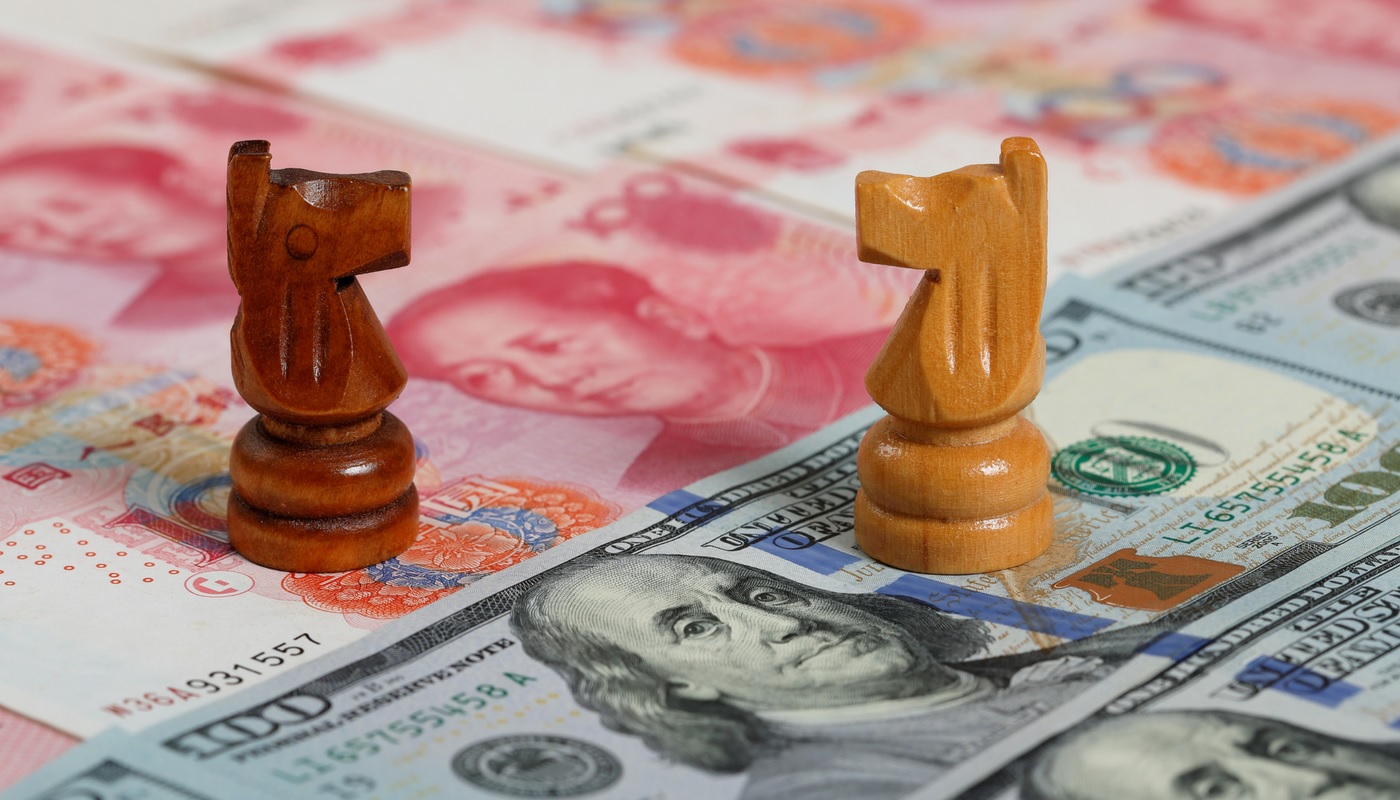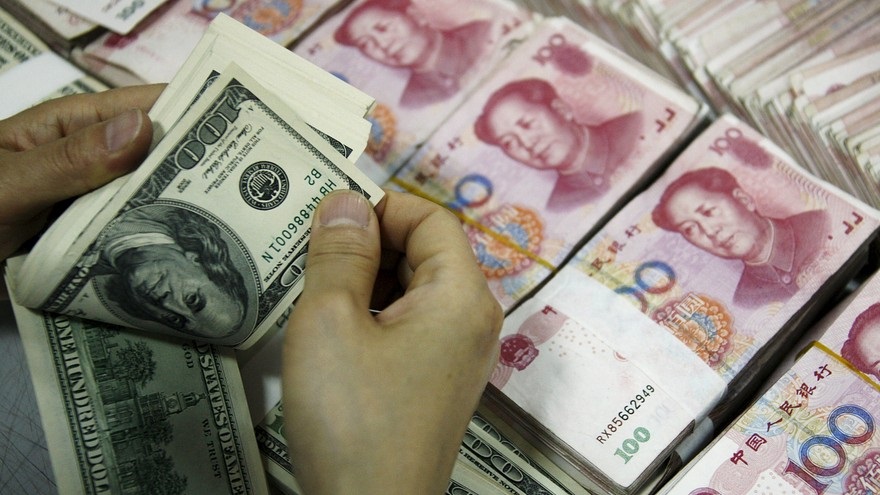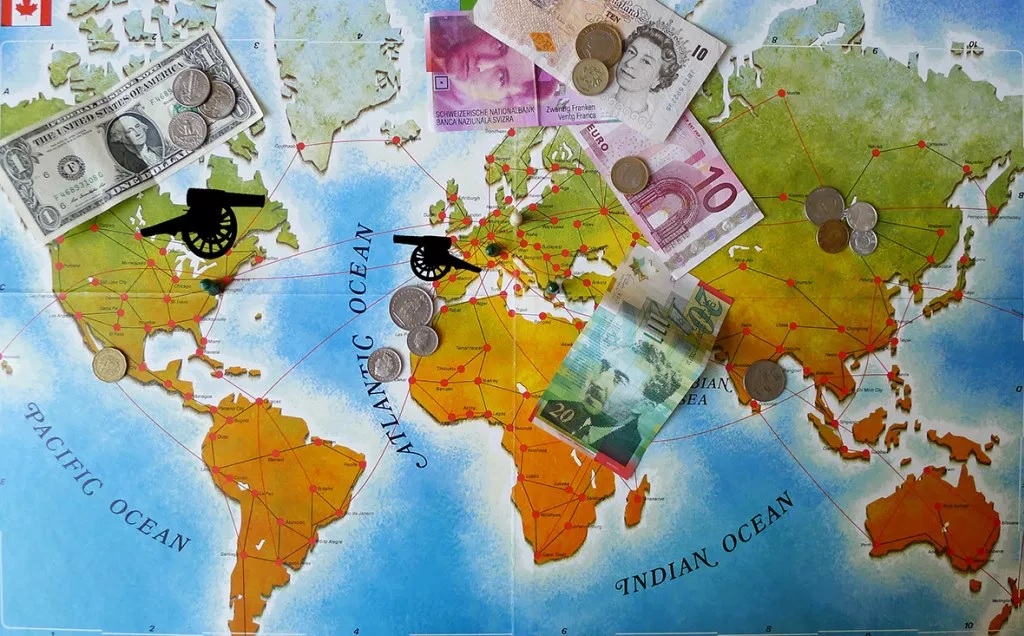The Currency War
By Lana Mann
 货币战争
货币战争
虽然双方都没有正式承认,但可以肯定地认为,可能对全球经济造成灾难性后果的巨大货币战争在不久的将来会在美国和中国之间出现。 事实上,它可能已经开始了。
目前美国和中国之间发生货币战争的风险源于美国政府今年早些时候煽动的贸易战升级,美国政府采取过度激进的经济策略来纠正两国之间巨大的贸易不平衡。 两国之间的贸易逆差是巨大的。 美国对这种不平衡的反应是发起一场针对中国生产的商品的运动,其中涉及增加约五千件商品的关税。 截至10月初,美国政府已经对价值2500亿美元的中国商品征收关税,这些商品会再次受到威胁。
对于普遍存在的货币战争,很大一部分重要经济体必须愿意立即贬值其货币。然而,美国和中国是世界上最大的两个经济体,一些人认为,如果证明中国对货币操纵的说法属实,美国可能会采取类似的攻击进行报复。
Though not officially acknowledged by both parties, it is safe to assume that a huge currency war, which could have catastrophic consequences on the global economy, is on the books for the near future between the United States and China. In fact, it may have already begun.
 Overview
Overview
A currency war is a condition in which a country or countries seek to gain trade advantages over one another by causing the exchange rates of their currencies to fall with respect to the currencies of other countries. This creates an increased demand in markets, both foreign and domestic, for such a country's goods thus benefitting the domestic industry as well as the rate of employment. It would also simultaneously increase the prices of imported goods, thereby reducing the purchasing power of citizens in context of such goods. If such a policy were to be adopted by multiple countries against one another, it would result in an inevitable breakdown in international trade relations.
The current risk of a currency war between the United States and China originated from the escalating trade war instigated earlier this year by the United States government, which resorted to overly aggressive economic tactics to rectify the enormous trade imbalance between the two nations. Trade deficit between the two nations was a mammoth. Response of the United States to this imbalance was to launch a campaign against Chinese produced goods which involved increasing tariffs on about five thousand of the goods in question. As at the beginning of October, the United States government had issued tariffs on $250 billion worth of Chinese goods with recurring threats to do more.
Then it was time for the fight back. At some point in June this year, value of the Chinese Yuan began to go into a steady decline, providing an apparent means of fighting back against the tariffs imposed by the United States government. At this point in time, the value of the Yuan has weakened to its lowest point since January 2017, bringing its total decline against the dollar for the current year to over 6%. This weakening of the Chinese currency, whether natural or artificial, has helped to make Chinese exports more competitive in the US, thus offsetting the impact of tariffs issued by the US.
 Effects of Currency War
Effects of Currency War
Though the effect of the decline is clear to see, its origin however, has sparked widespread debate. While rivals like Japan and the European markets are suspicious of the timely fall in value and the US has continuously held back from labeling the Chinese, currency manipulators, neutral economists and strategists have come to the defense of the Chinese, claiming that the fall in the value of their currency is due to domestic factors such as the country’s falling stock prices. They also proclaim that the ongoing trade conflict between both countries has been strengthening the dollar while weakening the Yuan.
Both arguments, presented for absolving the Chinese of any accusations of manipulation, are adequately reasonable and are further supported by the fact that the Chinese sold reserves to the tune of $17 billion in a bid to stem their losses in September. These, however haven't dissuaded those who believe that the Chinese government have at least consciously allowed the slide in value to continue even if they have not directly put in place practices that aid its fall. It is not hard to see the sense in this line of thought as the gains are clear for all to see. It would be interesting to see how things play out in the coming months as a continuous reduction in the value of the Yuan would lead to detrimental effects on the Chinese economy that would more than outweigh its present advantages.
For a widespread currency war to occur, a large proportion of significant economies have to be willing to devalue their currencies at once. Luckily for the world economy, this is far from the case currently. However, the US and China are two of the world’s largest economies and it is believed by some that if the claim of currency manipulation by the Chinese is proven to be true, the United States might retaliate with a similar attack, further inching the world towards a currency war. Fortunately, this is unlikely because such an action would put the United States at a great economic disadvantage due to the greater effect of consumer spending on its economy.
Devaluation of the Yuan is still a problem though. Other than the two major countries involved, many commodity exporting countries are likely to be in the line of fire if a full currency war breaks out. Already Indonesia, the Philippines and India, especially the latter, have sustained massive losses to their local currency. And that is on the outside. In China, it is only a matter of time before such an unsustainable drop in the value of currency would lead to political tensions stemming from loss of credibility of the Government. For all concerned parties, a currency war is the least practical and most destabilizing resolution.